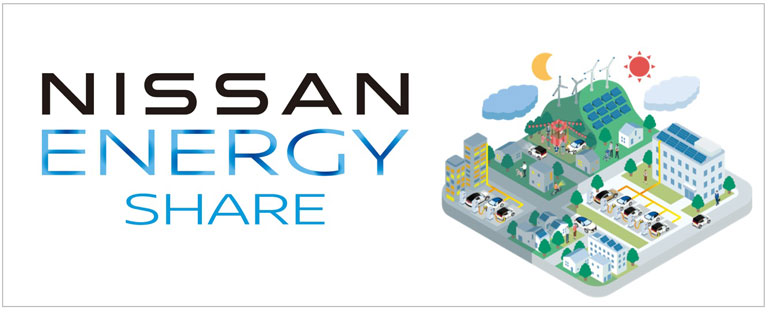Contributing to community development through mobility and energy in Fukushima Prefecture's Namie Town
In February 2021, Nissan Motor signed a "Collaboration Agreement for Community Development Utilizing New Mobility" with a wide variety of companies, such as distribution and construction consultants, that was centered on the three municipalities in Fukushima Prefecture – Namie Town, Futaba Town, and Minamisoma City.
Nissan believes that, through this agreement, it is important to incorporate "exciting" elements into the various initiatives and foundations for daily life, and is aiming to contribute to technological innovations in mobility and energy in order to help residents, workers, and visitors to create a town where people want to live.
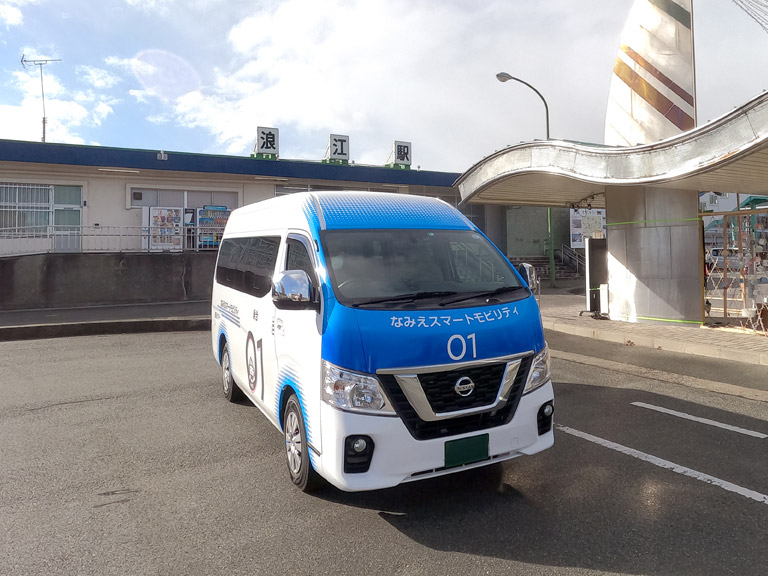

Mobility services - Namie Smart Mobility
In Namie Town, located in Japan’s Fukushima Prefecture, Nissan is field testing “Namie Smart Mobility,” a ride-hailing service. The online service utilizes AI and connected technology to offer convenient mobility services around the area. Since 2021, the project has gained attention and praise from the local community, including being recognized with a Good Design Award in 2022, ranked in the Good Design Best 100. The project was also awarded a special Good Focus Award by the Japan Institute of Design Promotion for its disaster prevention and reconstruction efforts.
1. Sustainable in-town mobility services: easy daily transportation
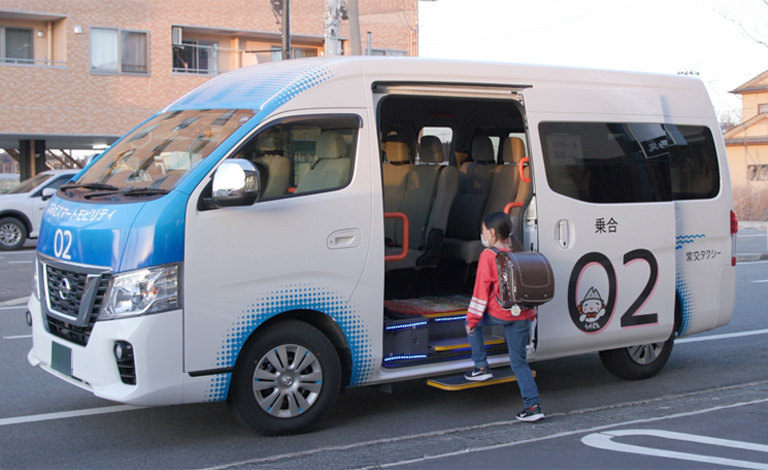
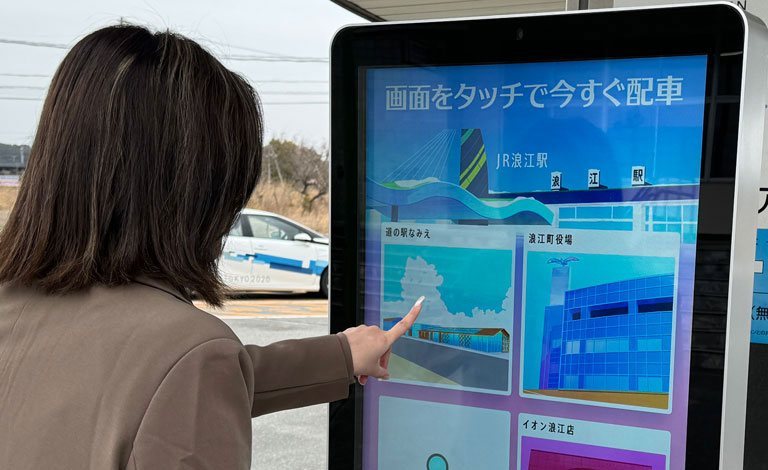
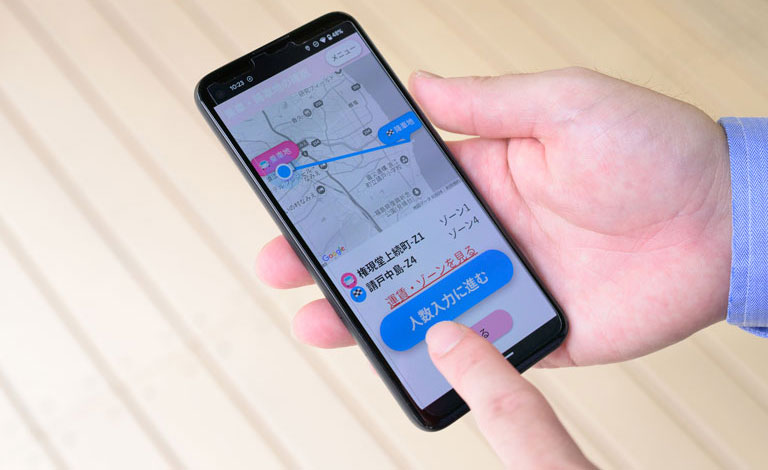
The field tests aim to strengthen Namie Town’s public transportation network and support local activities for locals and visitors.
Increased convenience
Approximately 300 virtual stops have been designated across Namie Town to support a variety of daily needs and activities. The ride-hailing service can be accessed through a convenient smartphone app, digital hailing kiosks installed at train stations or tablet-style mini hailing signs located in hotels and restaurants.
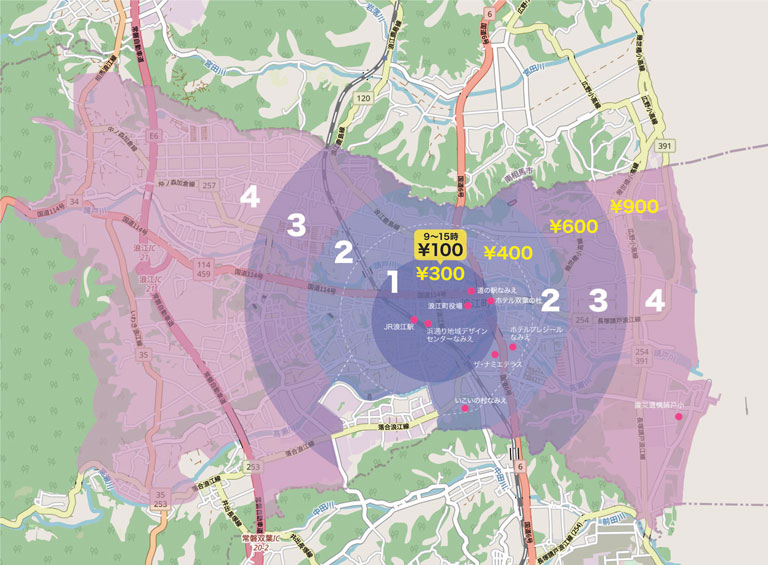
Simple and easy-to-use
The development of the ride-hailing app and touchpoints incorporated feedback and suggestions from local residents to ensure a simple and pleasant experience.
For example, people can use the app’s search function to set their nearest virtual stop and reserve a vehicle with just a few simple steps. Reservations can also be made using digital kiosks.

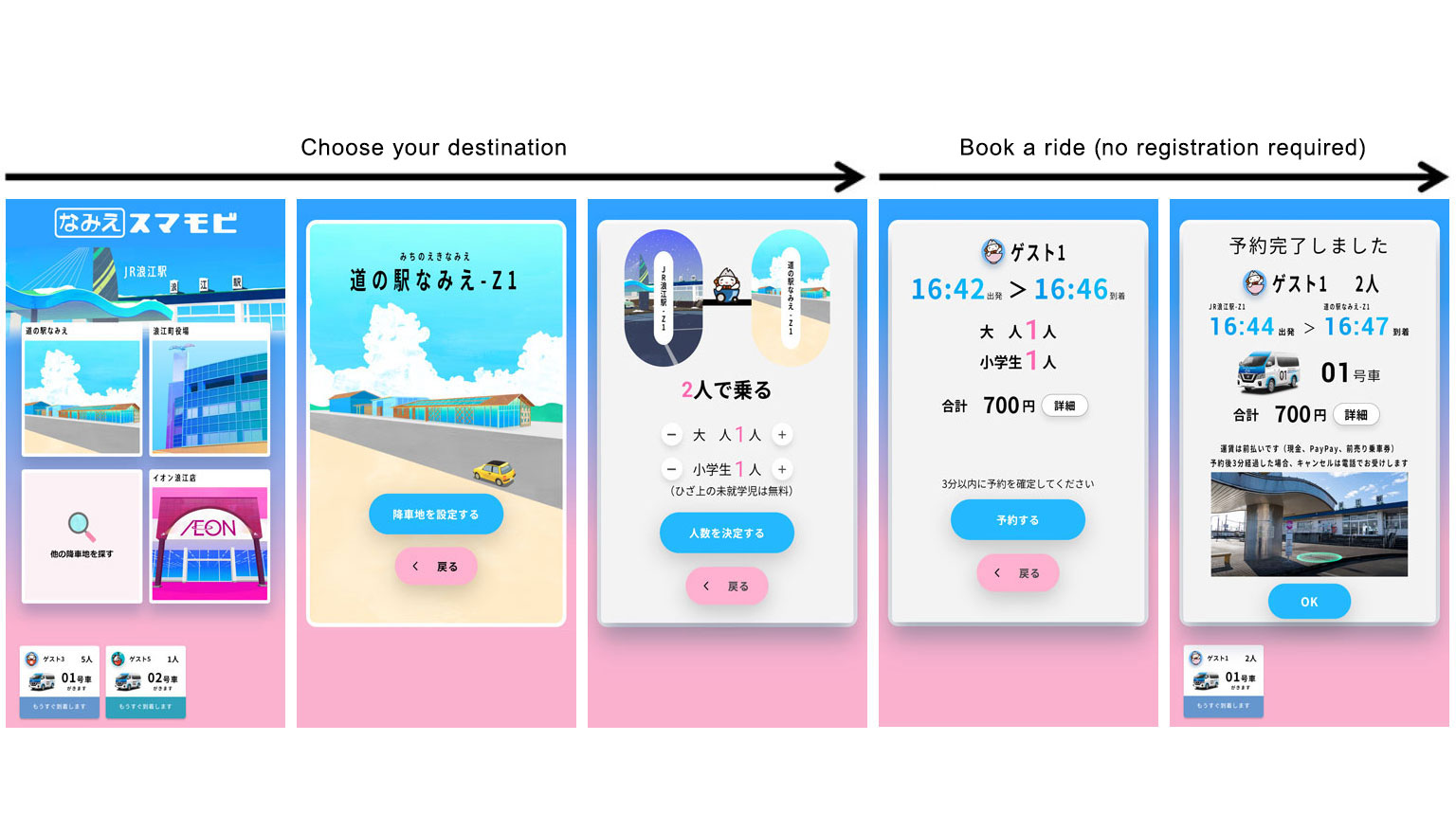
2. Sumamobi Kids helps children engage in more activities
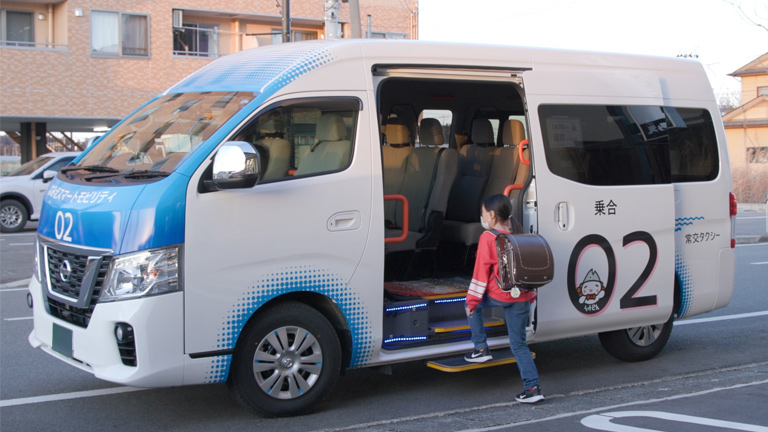
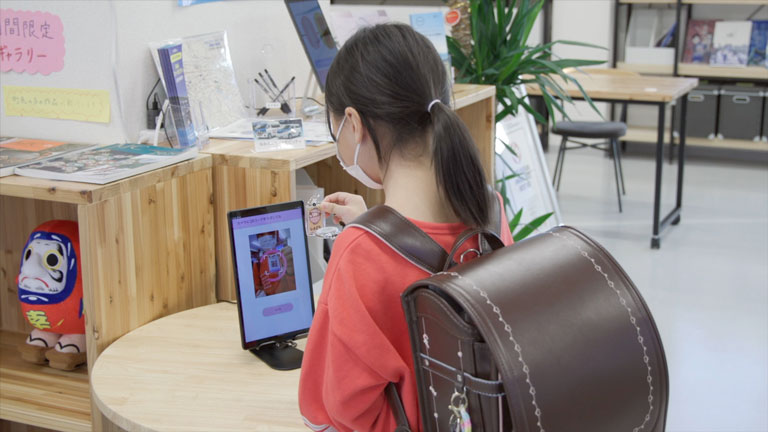
While school buses are used in Namie Town for transportation to and from school, parents or guardians have to give children rides to go elsewhere. The Sumamobi Kids service aims to reduce transportation burden and help children engage in extracurricular activities more independently and accommodate diverse needs.
Children can use the service by scanning a special keychain with a unique QR code, allowing even those without smartphones to utilize mobility services at designated bus stops. In addition, parents can preset their children's destinations through a smartphone app. The ride-hailing system that works with mobile device information is also capable of notifying parents of vehicle usage, ensuring that children can safely use the smart mobility service on their own.
3. Mini digital kiosks to support local dining
For the convenience of tourists and business travelers coming to Namie Town, Nissan has set up 17 mini digital kiosks in hotels and restaurants, allowing anyone to book a ride without prior registration. This service aims to improve user convenience and support local business transportation services.
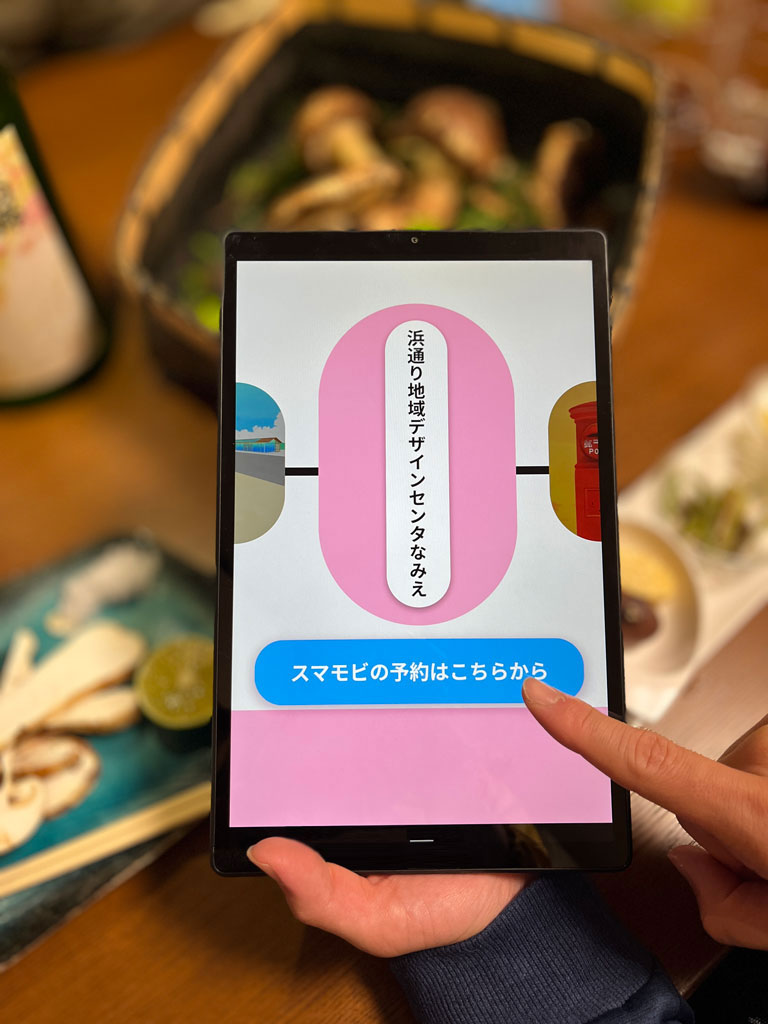
Energy management
By building an energy management system that uses electric vehicles and stationary renewable batteries, the project is improving renewable energy utilization at various facilities and stores in the region and is accelerating carbon reduction efforts.


By utilizing the renewable energy power generation equipment owned by commercial facilities in Namie Town, power control systems (PCS), and the town’s Nissan LEAF EVs, and by installing Nissan's autonomous control system in the PCS, the project aims to verify efficient energy operation and to build an energy management system that promotes the local production for local use of clean energy.
Features of the energy management system
-
Autonomous EV charging/discharging
The Nissan autonomous decentralized systems that are installed in the PCS autonomously cause the town's EVs to charge/discharge based on the amount of power generated from solar, wind, and hydrogen fuel cells, and on power demand information at commercial facilities. -
Adjusting EV charge/discharge priority and timing
The autonomous control system takes into consideration the remaining battery level and usage patterns (typical departure times and distance driven, etc.) for the five Nissan LEAF vehicles, and, additionally, determines the priority vehicles to use for charging/discharging and then conducts charging/discharging at the required timing. -
Effective utilization of renewable energy and stabilization of power systems
By using this system to reduce the peak power consumption of commercial facilities, it can be expected to reduce electricity costs. Additionally, by aiming to use 100% renewable energy for EV charging power, the system is contributing to effective energy use and the stabilization of power systems. -
Development of a convenient, dedicated app for users
By using an app to set usage times and the vehicle's required charge level, users can have the vehicles charge and discharge outside of their usage times, and can have their required charging completed by the time they start using the vehicle.
The energy management initiatives developed in Namie Town were put into commercial use in February 2024.
Nissan Energy Share: A new service unlocking more EV value in Japan
